- 會員登入
- 加入會員
- Call : 07-6561921 轉6664 ~ 6666
- fgce@ecp.fgs.org.tw





書籍編號 :5880
作者 : Venerable Master Hsing Yun
出版社 : 佛光文化
出版日期 : 2021-09-30
ISBN : 9789574575961
頁數 :200
裝訂 :平裝
定價 :250.00
本書折扣:9折,優惠價為:225
很抱歉,這商品暫時缺貨。
In today’s Buddhist sphere, numerous claims have been made on what the Buddha has taught. However, were these teachings truly spoken by the Buddha? The Buddha-Dharma: Pure and Simple series is an exploration of over 300 topics, where Venerable Master Hsing Yun clarifies the Buddha’s teachings in a way that is accessible and relevant to modern readers. Erroneous Buddhist views should be corrected, the true meaning of the Buddha must be preserved to hold true to the original intents of the Buddha.
All Buddhist practice begins with right view, for it is the compass that points toward the true path of cultivation. This fourth installment continues laying the groundwork of this foundation by addressing age-old misconceptions. Covering a wide range of social issues from the perspective of the Buddha-Dharma, Venerable Master offers readers a practical but profound approach to Buddhist practice in daily life.
About Venerable Master Hsing Yun
Translator’s Introduction
Preface
Translator’s Introduction
“Dharma can only be found in the world, and awakening cannot be attained away from it.” The teachings of the Buddha are closely entwined with human life. They are the compass that guides us on the path of cultivation. There are four approaches in reading this installment: in relation to other people, other Buddhists, nature, and society.
In relation to other people
Every sentient being is dependent on and connected to another. It is impossible to exist on one’s own without the help of others. As a result, it is the wish of Venerable Master Hsing Yun that we can widen our hearts to accept everyone and everything in this world. In this way, life becomes limitless.
In relation to other Buddhists
In the long history of Buddhism, age-old misconceptions have been passed down from one generation to another without being questioned. Many articles are aimed towards practicing Buddhists, including monastics, in order to increase awareness about erroneous thinking and attitudes. Because some themes presented may be culture-specific, there are notes at the end of the book that provide additional clarification.
In relation to nature
Environmental issues are currently one of humanity’s most important concerns. Because our thoughts serve as the basis for the world we live in, Buddhists prioritize spiritual preservation in addition to collaborative efforts in environmental protection. When the mind is equipped with wholesome qualities, our actions are naturally considerate, leading to the purity of our surroundings.
In relation to society
Some of the societal concerns explored in this book include equality, politics, and hospice care. By relying on the Buddha’s personal experiences and teachings, Venerable Master addresses these challenges, giving insight into how the Buddhist tradition can address some of society’s most pressing issues.
Buddhist teachings are not just realized through words and writings; they must also be put into practice in daily life to be fully realized. May this fourth installment serve as a practical guide to discovering wisdom in everyday life.
Heaven, Earth, and Humanity
“Heaven, Earth, and Humanity” are basic elements that constitute phenomena and the meaning of life. As the saying goes, “Heaven, Earth, and Humanity each has its laws.” As such, each should be a cause and condition unto the other and be codependent. According to the old Chinese saying, “We are dependent on Heaven for subsistence.” In truth however, we depend not only on Heaven, but also on Earth to provide us with resources as well.
Asides from Heaven and Earth, all aspects of our lives are also dependent on people of all trades and professions. For example, the clothes we wear are dependent on the workers who weave the fabric. The food we eat is dependent on the farmers who plant and cultivate crops. Our survival and all of our daily necessities are dependent on the labor of others. It is because of mutual causes and conditions between “Heaven, Earth, and Humanity” that we can exist in this world.
It is said that “Heaven is light and pure energy that has floated upwards, and Earth is heavy and turbid energy that has coagulated downwards.”
Heaven, Earth, and Humanity are the entirety of nature. Heaven is not created by anyone, nor does it belong to any particular person. We consider the air that slowly flows upwards as Heaven. It belongs to nature. No matter Heaven or air, we are reliant on them to continue our lives. Without Heaven or air, life could not exist.
The Earth is worthy of our respect. As mentioned in Buddhist sutras, there once was a bodhisattva named Syamaka who dared not step forcefully for fear of hurting the earth and dared not litter on the ground for fear of polluting the earth. In modern terms, this is akin to environmental preservation. This is why we should respect Heaven and protect Earth, as they are interconnected with our life and survival.
Within “Heaven, Earth, and Humanity,” Buddhism is considered to be a part of Earth. The Earth’s sentient beings all possess buddha nature. It is the Earth that nourishes all things. It
is the Earth which carries us and contains inexhaustible treasures. The Earth provides living beings with a space for activity and survival.
In addition to the planet Earth that we live on, there are many other lands that exist within the universe. Each of the planets are also inhabited by different forms of life, as can be seen by the Buddhist concept of the trichiliocosm. However, though Heaven and Earth may be vast, the human heart is even bigger. This is why the sutras describe the mind as embracing the vast emptiness and being as boundless as the myriad worlds.
What exactly is Humanity? According to Confucianism, when two horizontal strokes are added to the Chinese character 人 (human), it becomes the character 仁 (benevolence). It signifies that harmony and mutual respect should be present between two people. It is only with kindness, benevolence, and righteousness can a person be considered humane.
Moreover, the Confucian teachings—such as “Four Moral Standards and Eight Virtues” and the “Three Fundamental Bonds and Five Constant Virtues”—are all teachings on human conduct. These have served as the moral guideline of Chinese politics and society since ancient times.
Once in the Ming Dynasty, the neo-Confucian scholar Wang Yangming brought his students out on a field trip where they witnessed an argument between two women.
One of the women shouted, “Good heavens! You are unreasonable!”
The other yelled, “You have no conscience!”
When Wang heard this, he called to his students, “Quickly come and listen to this lesson that these women are teaching!”
“Teacher! They are hurling insults at each other,” replied his students. “How can they be teaching a lesson?”
“Look,” said Wang. “One spoke about reason, and the other conscience. Is this not a lesson?”
“Indeed. They are truly teaching a lesson,” the students replied.
Wang continued, “If we were to demand others to be reasonable and to have a conscience, arguments and conflicts will certainly ensue. If we were to demand this on ourselves, then the human character is perfected.”
Therefore, a wholesome person strives to be reasonable and conscientious. Heaven, Earth, and Humanity are natural laws. As long as these laws are followed, everything in the world will work out smoothly and there would be no need to restrict people through legislation, economy, politics, or other forms of power.
In recent years, several major natural disasters have occurred around the world. It is not because Heaven has no pity on us or does not protect us. Rather, we should ask ourselves: Are our actions in accordance with the heavenly laws? Are our actions reasonable and conscientious? In the past, when someone encountered misfortune, it is said they were receiving “heavenly retribution.” It means that when one does not respect the natural laws, even Heaven will reprimand us and cause calamities as punishment.
The Earth goes through the processes of formation, abiding, deterioration, and extinction. The seasons change from spring, summer, autumn to winter. People experience old age, sickness, death, and rebirth. These are very natural phenomena. The power of nature is boundless and cannot be defied. Should one go against natural law, negative consequences will need to be endured over time. Such is also natural law.
People often fail to connect their hearts with Heaven, Earth, and Humanity. Take Humanity as an example. When two people are together, conflict often arises where there is mutual disapproval, disagreement, and discord. This is why there is disharmony between people. In particular, this can be seen in severed marital relationships or estranged familiar relationships. Why is human connection so fragile? It is because opposition arises when one’s inner world fails to exist in harmony with the external.
As we live between Heaven and Earth, we must integrate Heaven, Earth, and Humanity into our hearts. For example, let us treat others magnanimously just as Heaven embraces the vast emptiness. Let us resolve worldly issues honestly and sincerely just as the Earth sustains all existence. Naturally, the relationship between Heaven, Earth, and Humanity will be harmonious and amicable.
Heaven, Earth, and Humanity are all parts of our inner world and are closely connected to us. By expanding the minuteness of our lives, we can naturally stand with our head supporting the Heavens and our feet firmly on the Earth. As there is nothing that cannot be embraced or tolerated, we can build on the past and pave a way for the future to treat others with benevolence and loving-kindness. The spirit of Heaven, Earth, and Humanity is a teacher by which we should learn and practice from.


About Venerable Master Hsing Yun
Venerable Master Hsing Yun was born in Jiangsu Province, China in 1927. He studied at various renowned Buddhist institutions such as Qixia Vinaya College and Jiaoshan Buddhist College.
Soon after his arrival in Taiwan in 1949, he became the chief editor of Human Life, a Buddhist magazine. In 1952, his efforts in establishing Buddhist Chanting Association strengthened the foundation for his subsequent endeavors in the promotion of the Dharma. Venerable Master founded Fo Guang Shan Monastery in 1967, with the primary goal of promoting Humanistic Buddhism through Buddhist education, culture, charity, and propagation of the Dharma. Since then, over two hundred branch temples have been established in major cities around the world. He has also set up art galleries, libraries, publishing houses, bookstores, mobile clinics, Buddhist colleges, and universities including: University of the West, Fo Guang University, Nanhua University, Nan Tien Institute, and Guang Ming College. In 1977, the Fo Guang Tripitaka Editorial Board was formed to compile the Fo Guang Buddhist Canon and the Fo Guang Dictionary of Buddhism. Many other works on Buddhism have also been published.

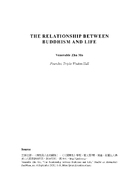


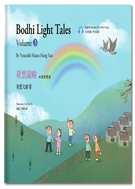
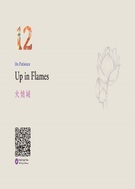
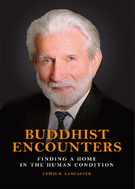
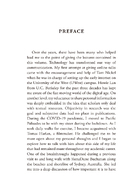

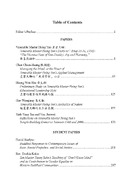
07-6561921 轉6664 ~ 6666
07-6563605
Email : fgce@ecp.fgs.org.tw
高雄市大樹區興田路153號
© 2025 佛光文化事業有限公司,統編:96958655 版權所有 All Rights Reserved. 26544079